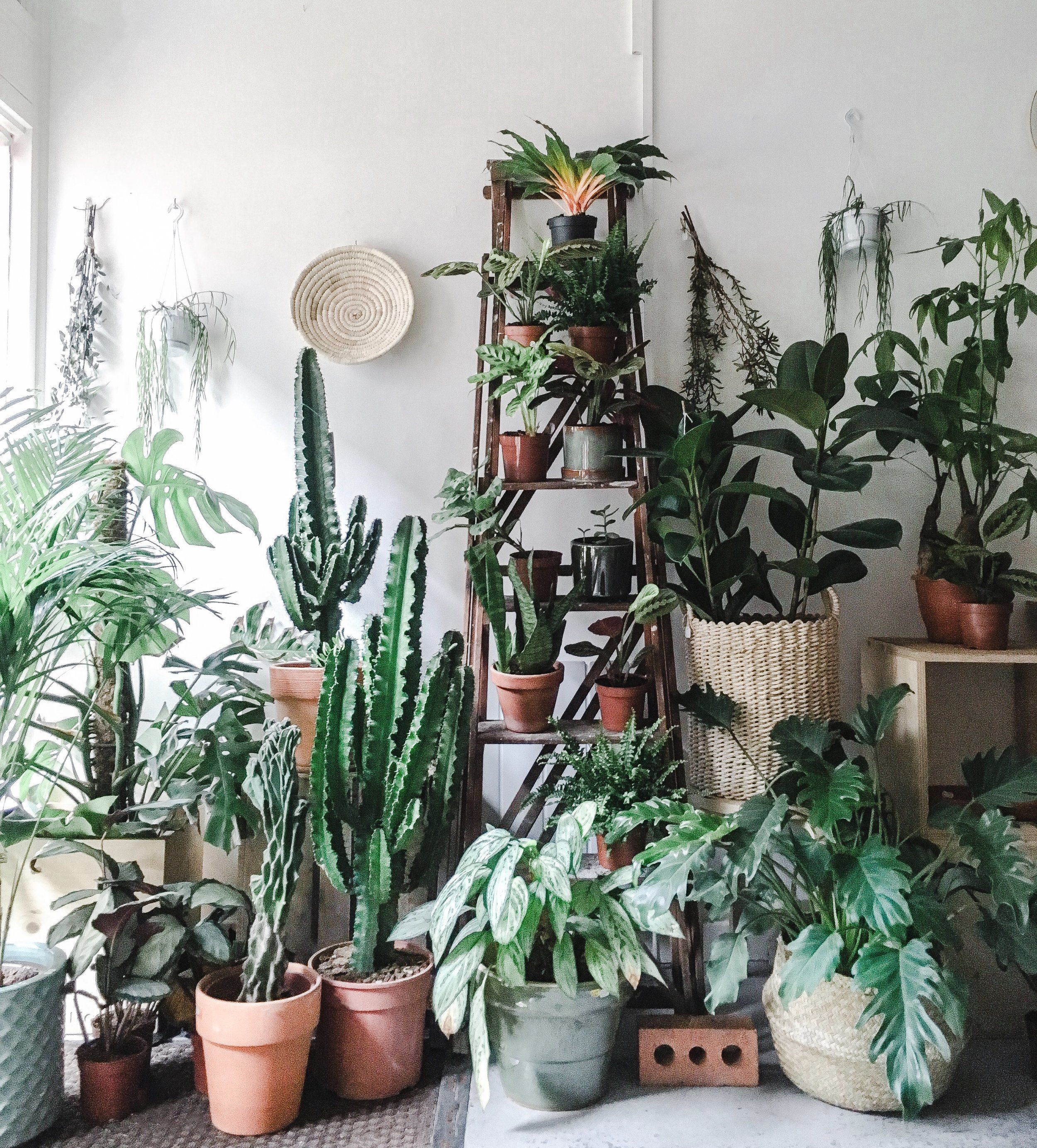Pets and Plants
Its a rainy day here in Sheffield, and as i sit in the office in my shop, i think back to when we got the sweetest Cat ‘Pip’ a recused feral, who sadly passed away last year from a sudden heart condition. (I miss him everyday)
Pip loved nothing more then to eat my plants, and hence this meant that i had to check everything really carefully before bringing them into my home. he nibbled my Maranta’s, ate at least two spider plants and the tips of all my airplants.
So in honour of Pip and other pets who love to eat plants, here is a list of houseplants that could be toxic to your sweetest and dearest. I will also include the ones that are safe too (although please note all animals respond differently to different toxins so please just keep an eye on your furry friends).
Toxic
Monstera (Swiss Cheese Plant) - Toxic to Cats & Dogs - Can cause oral irritation, vomiting, excessive drooling, difficulty in swallowing. - Pictures to follow -
Begonia (there are some that are fine, which i will list) Toxicity: Toxic to Dogs, Toxic to Cats, Toxic to Horses. Toxic Principles: Soluble calcium oxalates. Clinical Signs: Kidney failure (in grazing animals), vomiting, salivation in dogs/cats. Most toxic part is underground.
Silver Jade Plant - Also know as a money Plant. Scientific Name: Crassula arborescens, Toxicity: Toxic to Dogs, Toxic to Cats. Clinical Signs: Nausea, retching.
Sansevieria - Also know as Mother in Laws Tongue or a Snake Plant. Family: Agavaceae. Toxicity: Toxic to Dogs, Toxic to Cats. Clinical Signs: Nausea, vomiting, diarrhea.
Aloe Vera - Toxicity: Toxic to Dogs, Toxic to Cats, Toxic to Horses. Clinical Signs: Vomiting (not horses), lethargy, diarrhea.
Dieffenbachia - Family: Araceae - Toxicity: Toxic to Dogs, Toxic to Cats, Toxic to Horses. Toxic Principles: Insoluble calcium oxalates, proteolytic enzyme. Clinical Signs: Oral irritation, pain and swelling of mouth, tongue and lips, excessive drooling, vomiting (not horses), difficulty swallowing.
Scindapsus Can be known as a Golden Pathos or in the US Marble Queen. Toxicity: Toxic to Dogs, Toxic to Cats. Toxic Principles: Calcium oxalate crystals. Clinical Signs: Oral irritation, pain and swelling of mouth, tongue and lips, excessive drooling, vomiting (not horses), difficulty swallowing. Also includes Scindapsus pictus .
I have only included a few here, but if you are unsure about any plant you may have, please feel free to contact me and i can help identify it and let you know its toxicity. My email is hello@moonko.co.uk.
Also Insoluble calcium oxalate crystals are a common biomineral in plants, occurring as crystals in plant stems, roots, and leaves. The calcium oxalate crystal formation is also one of the toxic effects of ethylene glycol poisoning. (Just in case you were curious ethylene glycol is an organic compound with the formula (CH₂OH)₂. It is mainly used for two purposes, as a raw material in the manufacture of polyester fibers and for antifreeze formulations).
Now for a few plants that are suggested safe for pets.
Suggested Safe:
Maranta, known as a Prayer Plant
Calathea, which includes many varieties,
Spider Plants {Chlorophytum Comosum} - Apparently if to much is consumed it can cause low level hallucinogenic effects. I am not sure how this has been monitored….. however Pip did love a good Spider Plant.
Nephrolepis, known as a Boston Fern.
Burros Tail, also known as a Horse's Tail, Donkey's Tail, Lamb's Tail.
Chamaedorea Elegans
Haworthia
Pip

